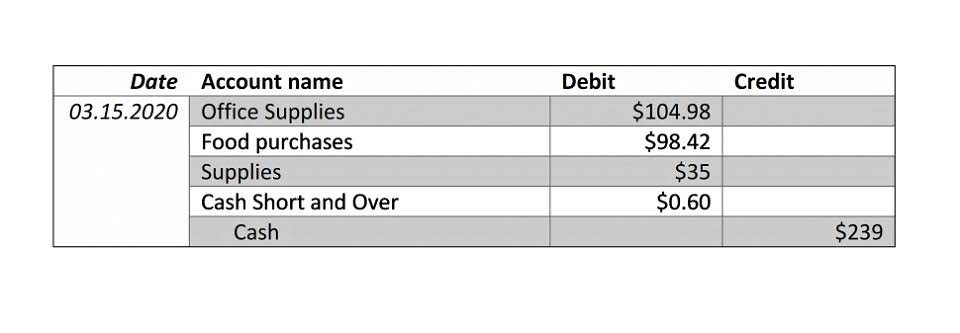
An audited financial statement (FS) is a set of financial documents examined by an independent CPA. The audit report attached to the complete set of FS provides an opinion on whether the FS presents fairly, in all material respects, and on the company’s financial position, operations, and cash flows. It is mandatory for publicly listed companies and large nonprofits to have annual FS audits, while small businesses are only required to produce audited FS when asked to do so in specific circumstances.
- The accountant will check, but not test, that your company adheres to generally accepted accounting principles (GAAP).
- Reliable information from audited financial statements aids in data-driven decision-making and strategic business planning, much like accurate blueprints and inspection reports aid in a building’s future maintenance and utilization.
- Picture an audit financial statement as a detective’s report, objectively examining the company’s financial records to ensure they accurately reflect its transactions.
- GAAP are the standard guidelines and procedures for financial accounting and reporting, ensuring consistency and comparability across financial statements.
- In the field of attestation and assurance, the auditor’s opinion holds a significant weight in the financial statements, and any reader of the financial statement can rely on the auditor’s opinion.
- Discover what budgeting is, the goals and questions your budget needs to answer, and why creating a budget is essential for any business.
Crucial for Building Investor Confidence
Financial statements are formal records that outline a company’s financial activities and position, including the balance sheet, income statement, and cash flow statement. Now that you know about audited financial statements let’s review the differences between audited and unaudited financial statements. Audited financial statements are required by numerous parties accounting – investors, lenders, and stock exchanges – so that users can have confidence that the information in the statements is correct.

Internal Audits

In this comprehensive guide, we delve into the intricate world of financial statement audits. Whether you’re a business owner, an investor, a lender, or simply curious about the financial audit process, this article is your go-to resource. We’ll cover what financial statement audits are, their importance, the differences from other types of audits, and how companies can prepare for them. Before delving into what audited financial statements are, it’s helpful to understand basic accounting principles. This is followed by the internal controls testing stage, much like the inspection of a building’s structural integrity, where auditors assess the design and implementation of internal controls.

What Is Budgeting and Why Is It Important for a Business?
It offers potential buyers assurance about the accuracy of the financial information presented, thereby facilitating smoother transaction processes. This involves checking each line item, and they may even reach out to related third parties Coffee Shop Accounting to check on the status of transactions. For a reviewed report, the accountant will carry out an analysis to determine whether significant changes need to be made to the documents.
- It is critical for auditors to have a prepared and adaptive approach to risk assessment to ensure the quality of the audit remains high throughout the audit process, much like an architect adapting their designs to accommodate potential threats.
- This is followed by the internal controls testing stage, much like the inspection of a building’s structural integrity, where auditors assess the design and implementation of internal controls.
- These qualifications are issues that the auditor believes to be too significant to ignore.
- A financial statement review provides a lower level of assurance than an audit (i.e., limited assurance) because it doesn’t require extensive evidence gathering.
- We conducted our audit in accordance with auditing standards generally accepted in the United States of America.

They’re set out by the Auditing Standards Board (ASB) of the American Institute of Certified Public Accountants (AICPA). Additionally, market analysts and rating agencies may downgrade a company’s creditworthiness, increasing borrowing costs. A higher cost of capital can limit the company’s ability to fund new projects or expansions, further constraining growth.
Those standards require that we plan and perform the audit to obtain reasonable assurance about whether the financial statements are free from material misstatement. Financial statements should be audited by a CPA because banks, creditors, and outside investors often require the assurance provided by an auditor’s opinion. Additionally, audits are a best practice before selling a company to ensure that the financial information is materially accurate and can withstand due diligence. The balance sheet provides a snapshot of a company’s assets and liabilities, while a financial statement tracks the financial activities of the business, offering more comprehensive information.
If there are financial statements definition any errors in the financial statements, the auditor will recommend corrective measures in accordance to GAAP and IFRS. The auditor will confirm the existence of assets and liabilities in the balance sheet. The integration of technology in audit processes, like in construction processes, enhances security and supports a collaborative culture by streamlining compliance processes. Audit automation software, like advanced construction software, consolidates financial data from various sources, allowing auditors to analyze large volumes of information efficiently. Yet, despite these technological advancements, human evaluation, analysis, and judgment retain their critical role in auditing, much like the essential role of skilled workers in a construction project. In audit jargon, it’s called “qualified” because the auditor has qualifications for the company’s FS.
